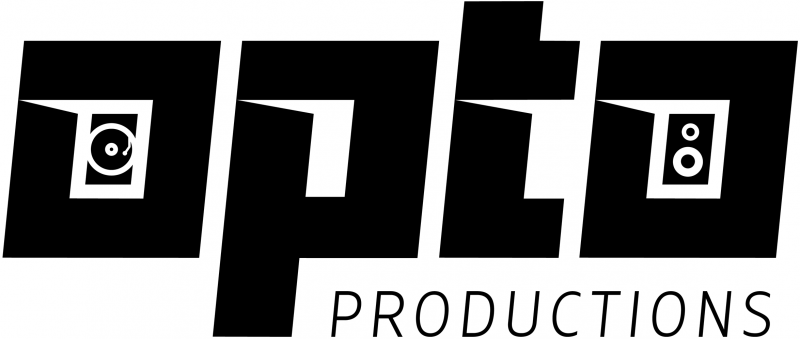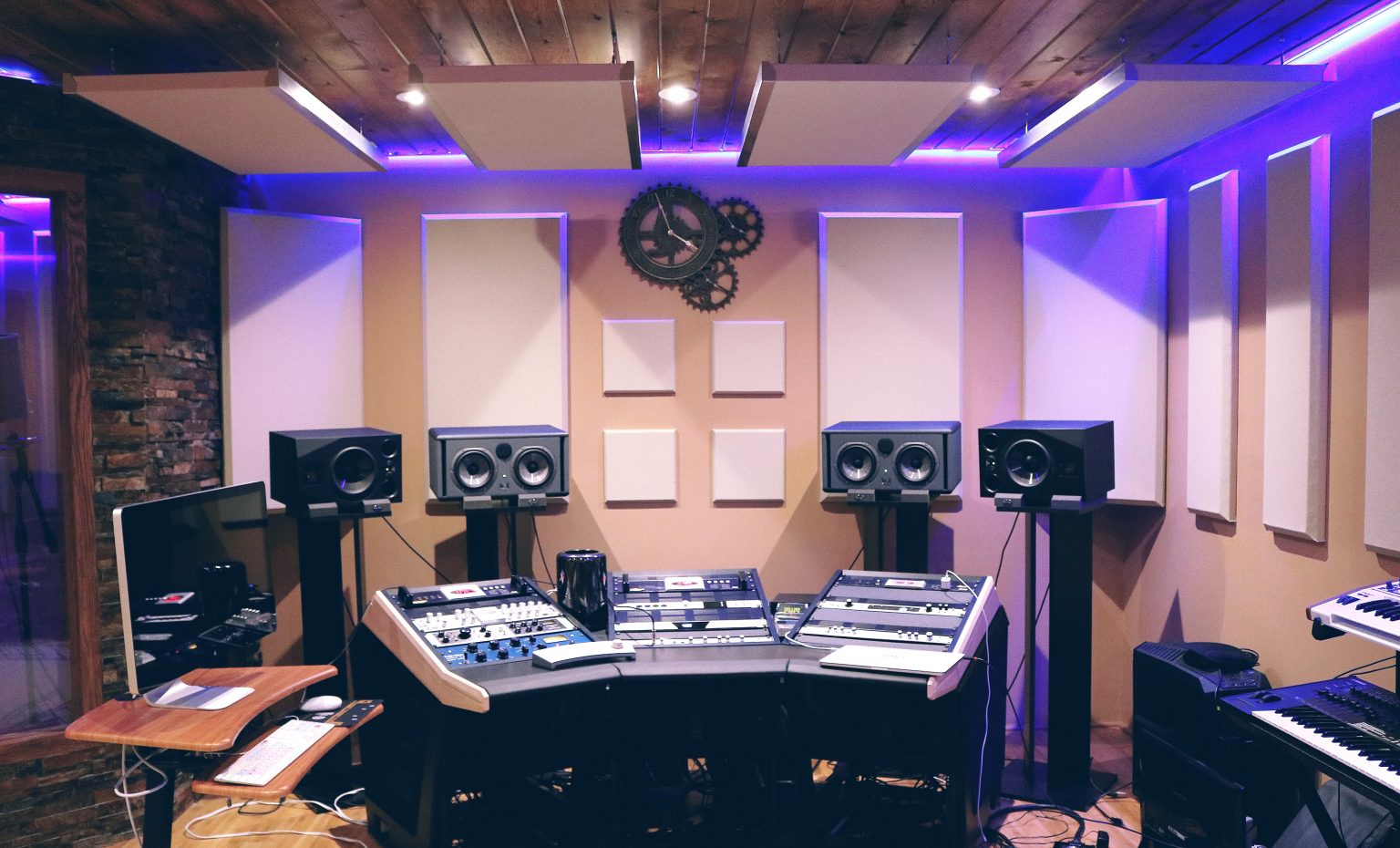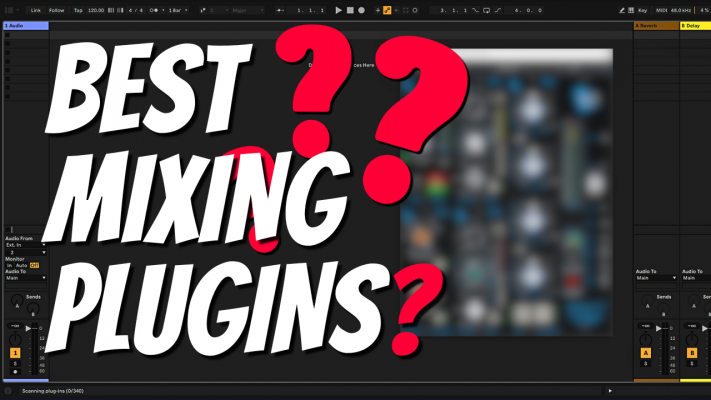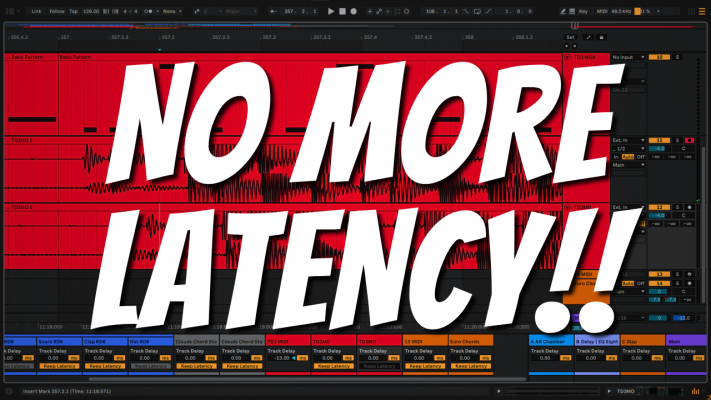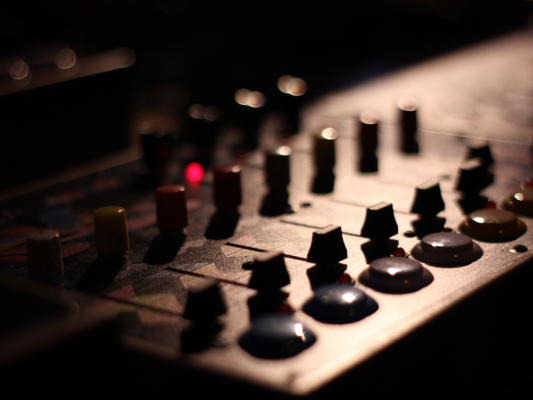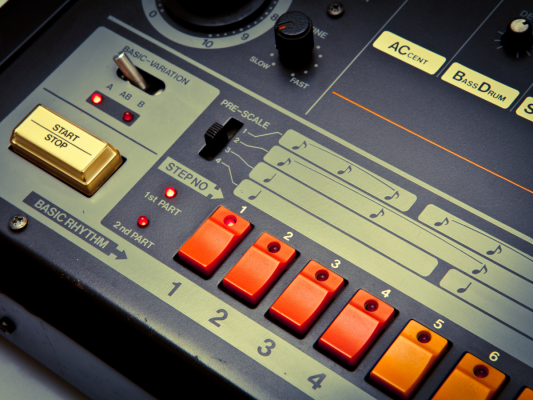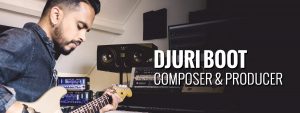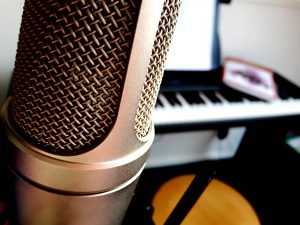Mastering is an art form that requires a deep technical understanding of analog and digital audio. Mastering is much more than just putting a limiter on the master bus. While it’s technically possible to master your own tracks, there are many reasons why it’s not recommended.
Let’s first start with 4 reasons not to master your own tracks.
Reason #1 – Acoustics
One reason why a mastering engineer can deliver better results then you is because a good mastering studio has great acoustics. Most producers and mix engineers don’t have access to studio’s that sound balanced from 20Hz to 20.000Hz. This is not only due to the way the room is build and acoustic treatment is applied but also has to do with furniture. A large mixing console or big studio desk will affect the sound coming out of your speakers.
If you google mastering studio’s you will see that most have tiny desks, with lots of empty space to keep the path from speakers to your ears as pure as possible. A producer studio has many obstacles for the sound to pass, such as control room windows, screens, synthesizers, guitar amps, drum kits, or what have you. All these objects all add their own reflections that are not ideal for a real mastering environment.
Reason #2 – Experience
A mastering engineer has lots of experience listening in his or her own studio. They know their monitors and room in and out. Professional mastering engineers know exactly how the kick on a hip-hop record should hit or the bass on a drum and bass record. They know how dynamic a classical album could be and how loud a pop vocal should sit in the mix. This experience comes with time and by listening to tons and tons of tracks.
This experience also translates itself in the more technical details such as dithering. A mastering engineer knows how dithering works and what type of dithering is best for a given situation. They know how to prepare tracks for vinyl, cd, and online distribution and how to add metadata. They know all about true peak, LUFS, RMS, VU, dbU, dbFS, aliasing, smearing, R128, expansion, crossover distortion, linear phase, and all sorts of other technical terms.
Reason #3 – Tools
A mastering engineer picks his tools wisely. A mastering DAW like Wavelab in combination with audio restoration tools such as Izotope RX or Spectralayers. Metering software such as Izotope Insight provides the engineer with detailed information to spot problems that can not always be heard.
Good quality interfaces, cables, AD/DA converters, pre-amps, compressors, eq’s, multiband compressors, limiters, dynamic eq’s, and de-essers are used to shape tracks in endless ways. Equipment that is properly balanced and shielded and thus has no ground loops. The system as a whole and the interconnects are just as important as the equipment itself in order to introduce as little noise and distortion in the mastering chain as possible.
Reason #4 – Second opinion
Let’s say that you have a studio yourself that is properly treated with good monitors, high-quality outboard equipment, and great plugins. Maybe you know how mastering works and have experience mastering for others. Even if you are a mastering engineer yourself. There is one important reason not to master your own tracks. This has to do with objectivity.
If you’ve been writing, recording, producing, and mixing a song. You’ve spent a lot of time with this song. After a while, you don’t really hear the details anymore. An unbiased opinion is incredibly useful. If you hear a new song for the first time you don’t listen to the individual instruments, sounds, mix, arrangement and effects, you listen to the song itself. A mastering engineer may notice things that prevent the listener from immersing themselves in the song. After all, you want the listener to feel something when they listen to your music. The mastering engineers’ job is to get rid of all the things that stand in the way of selling that emotion to your audience.
What if I can’t afford a mastering engineer?
Many people master their own tracks because they don’t have the budget to hire a professional mastering engineer. Maybe you just don’t have the time to send it over to a mastering engineer. A good alternative could be using an online mastering platform like LANDR, which delivers excellent results in an instant for a great price. If you really do insist on mastering your own tracks, here are some tips to help you achieve the best results.
Tip 1 – Use references
By using reference tracks, you can compare your master with other professionally mastered tracks. It’s impossible to make a one-on-one comparison because every song is different. But by comparing a couple of tracks you get an idea if you’re in the ballpark or not. I use a plugin from Masteringthemix called Reference, which imports reference tracks and makes it easy to A/B different references. It automatically compensates for loudness differences and gives you an indication of how much low, mid, and high frequencies your own track has in comparison to the reference track.
Tip 2 – Listen in different playback environments
A good master will work in every room and playback situation. Listen to your master in the studio, in your living room, on your phone, laptop speakers, television, earbuds, headphones, and in your car. Listen for similarities. If you hear too much low end in all of these environments, you identified a problem. If the vocal is too soft in all situations, you need to raise the vocal level. This is one advantage of mastering your own tracks. You can easily go back and change the mix, especially when you master in the same DAW project.
A common trick to check your master is to listen to your music in an adjacent room with the door open. Can you still understand the words clearly? Can you follow the melody? If so, great job! Small speakers that lack low-end such as television speakers, but also Yamaha NS10’s or Avantone Mixcubes are great for checking your master on less optimal speaker systems. This is a great test to see if your low-end translates to smaller speaker systems. It’s also great for checking mid-clutter, because these speakers focus on the midrange.
Tip 3 – Ask for feedback
Send your master over to another producer or mixing engineer and ask for their opinion. They will probably notice things you missed entirely. Sometimes listening to a master with someone else in the same room can be extremely helpful as well. For some reason, listening to your music with someone else makes you judge your music differently.
Tip 4 – Take some rest
This might be the best tip. Take a break after you’ve finished mixing. Even coming back the next morning with fresh ears will make you put things into perspective. If you have the time, leave it for a week. Listen to other music in the meantime and work on other projects. When you come back to master it, you’ve regained a little bit of objectivity that helps you see the big picture again.
Mastering your own tracks isn’t ideal and I would not recommend it to anyone. But if you do decide to master your own tracks, keep in mind the tips above. Let me know in the comments if this helps for you or if you have any questions.
